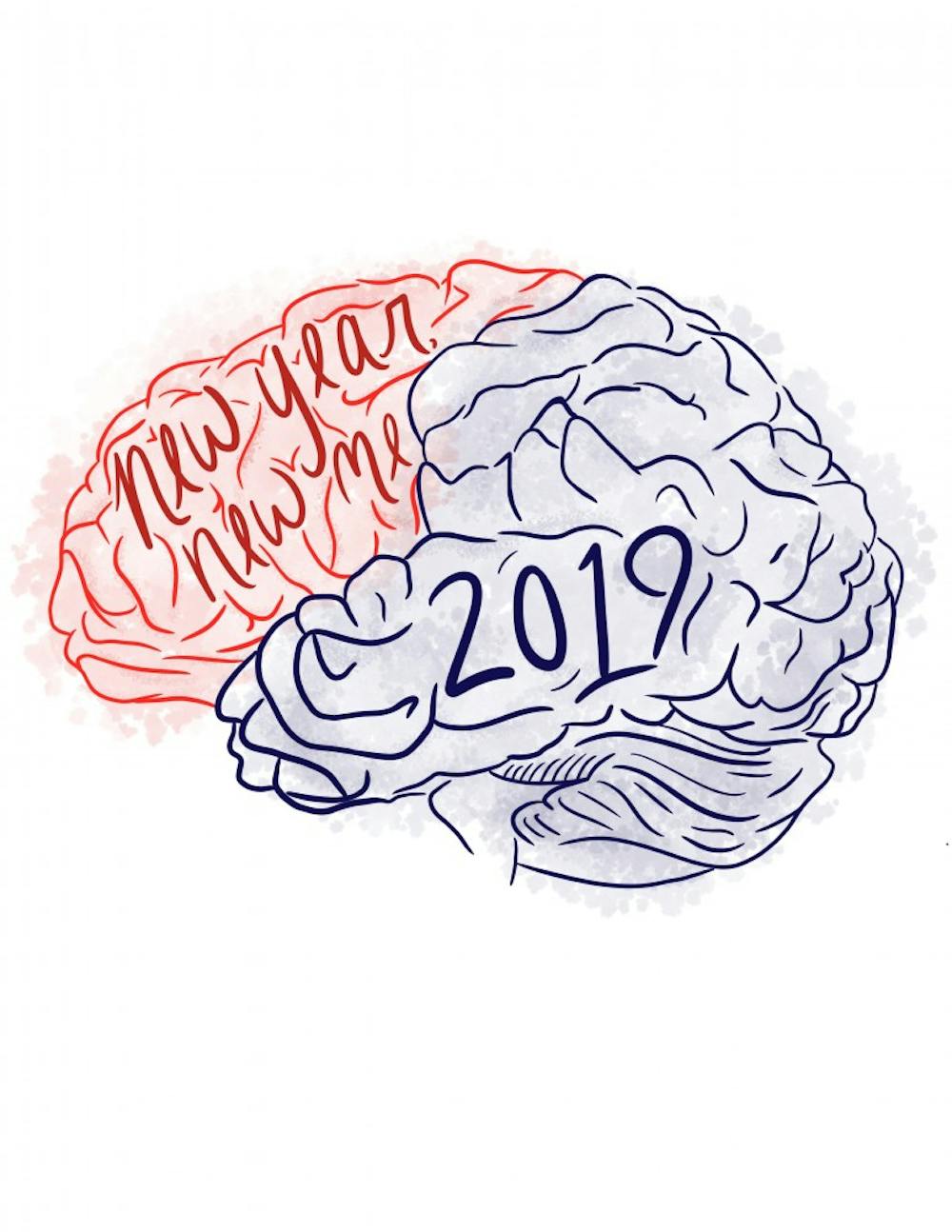Millions of people across America made vows to themselves to ring in the new year. Some might be focusing on fixing marriages or unhealthy lifestyles. Many may be asking themselves if resolutions are worth it at all.
Psychology offers theories about why people make New Year’s resolutions, but there is no concrete answer. No matter the reason, research has identified a few ways to make people more likely to stick to New Year’s goals.
Edward Hirt, an IU professor of social psychology, said in an email many people make resolutions because they reflect on the past year and discover what they want to change.
Another reason many people decide to make these resolutions at that time is because a new year is a literal and symbolic transition in most people’s lives, Hirt said. It is a closing of one chapter and the opening of another.
“When we hit transitions in our lives, it is natural to take stock of where we are,” he said. “The tradition of making New Year’s resolutions formalizes this process.”
Many effects of resolutions are positive, and it’s always a good idea to become aware of both good and bad habits, Hirt said.
New Year’s offers many a fresh start, but it isn’t the only time people better themselves.
“People often do it after tumultuous events or other life transitions, which serve to give us a chance to make a new start and reassess where we've been and where we're going,” Hirt said.
New Year’s resolutions have a reputation of being doomed from the start, with notoriously poor results. Many people have the motivation, Hirt said, but when temptations or stress comes back after the initial catalyst, some revert back to old habits.
“It requires genuine life changes and often social support to help us maintain them over long periods of time,” he said.
While there is no surefire way to make resolutions stick, research conducted by New York University professor Peter Gollwitzer on how goal intentions can help people attain their goals by planning for troublesome scenarios in advance.
Gollwitzer’s research showed many people fail their goals because of lack of planning rather than lack of motivation. For example, if someone was trying to lose weight for their New Year’s resolution, the person needs to identify certain triggers or situations in which he or she miss their goal breaks.
Take the scenario of the late night snacker. If someone feels cravings kick in, the person can plan ahead and prepare a small meal comprised of various vegetables or fruits to snack on instead of high calorie or junk foods.
Another one of Gollwitzer’s studies found the strength of the conviction is also an indicator in whether the resolution will stay strong or not. If someone strongly commits to improving whatever area of their personal life he or she chooses, then there is a higher chance of goal attainment.
Hirt said the goal of any type of personal improvement does not always lie in the result, but rather in the continuous goal of individual betterment.
“The ultimate purpose is to engage in a period of self-assessment and set some concrete plans and goals for change in the coming year,” Hirt said.




